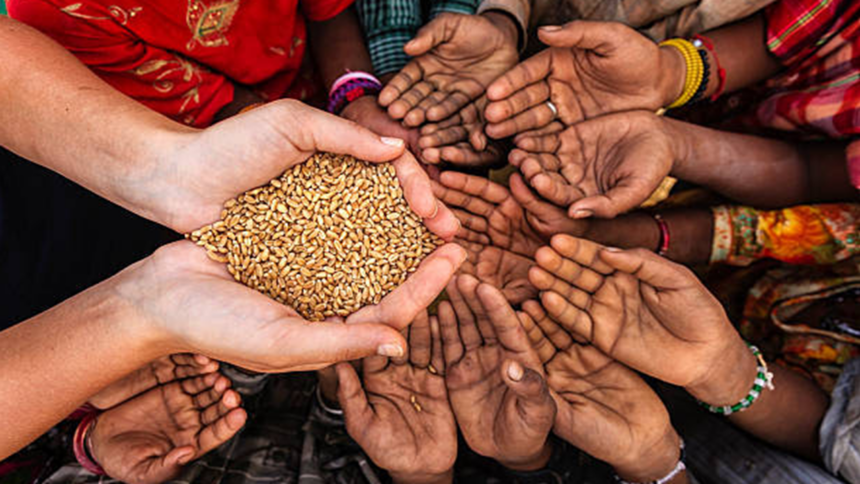RASC News Agency: The United Nations Office for the Coordination of Humanitarian Affairs (OCHA), in its latest Global Humanitarian Overview 2025, has issued one of its most alarming warnings to date: the world is witnessing a historic surge in humanitarian need, coupled with a staggering decline in global compassion. According to the report, by the end of September 2025, nearly 300 million people across 73 countries will require urgent humanitarian assistance. Yet, concrete operational plans exist for only 181 million, with an estimated $45.34 billion required to deliver life-saving support.
Despite the unprecedented scale of need, OCHA reports that only $9.57 billion a mere 21 percent of the global requirement has been funded so far. This represents a 41 percent decrease from the previous year. The total global humanitarian budget has fallen from $22.49 billion in 2024 to $16.09 billion in 2025, marking a 25 percent contraction at a time when multiple crises from war and climate disasters to state repression are expanding simultaneously.
At the heart of this deteriorating landscape lies Afghanistan, a country gripped by economic collapse and governed by a regime that has methodically dismantled its social fabric. According to Afghanistan’s Humanitarian Response Plan (HNRP 2025), 22.9 million people more than half the population require urgent assistance. Of these, 16.8 million have been identified as priority recipients. To meet their basic needs, $2.42 billion is required. Yet, less than $142 million has been mobilized only one-fifth of the required funding reflecting the world’s waning willingness to operate under Taliban restrictions that have suffocated humanitarian access.
OCHA warns that the sharp contraction in global aid coincides with worsening conditions inside Afghanistan, where the Taliban’s draconian governance, gender apartheid, and economic mismanagement have compounded the suffering of ordinary citizens. Tens of thousands of families forced back from Pakistan and Iran now find themselves stranded in makeshift camps, as Taliban authorities fail to provide even minimal assistance. Restrictions on women aid workers, harassment of international organizations, and the Taliban’s arbitrary interference in humanitarian operations have further crippled relief efforts.
Globally, 114 million people are now in immediate need of life-saving assistance, requiring $29 billion in funding. Yet, allocations for food security one of the most vital sectors have plummeted to $3.35 billion, representing a 45 percent decline compared to last year. In some of the world’s most fragile states, such as the Democratic Republic of the Congo and South Sudan, humanitarian operations have been slashed by up to 66 percent, leaving millions on the brink of famine.
In September 2025 alone, OCHA-managed emergency funds distributed $79.3 million across 12 crisis-hit nations, including $58.3 million from regional and national funds and $21 million from the Central Emergency Response Fund (CERF). Afghanistan’s share was a mere $15 million a fraction of what is needed to prevent further mass starvation and displacement.
OCHA’s report paints a grim picture of a world turning inward while crises multiply. The drastic decline in funding, it warns, is placing unbearable pressure on the most vulnerable populations. Without swift, large-scale financial commitments, millions risk sliding into famine, homelessness, and irreversible destitution.
In Afghanistan, the consequences are catastrophic. The Taliban’s extremist policies have not only isolated the country diplomatically but have also obstructed nearly every channel of international assistance. Their bans on women’s employment in aid agencies, suppression of local NGOs, and interference in resource distribution have created an operational nightmare. Humanitarian staff face daily intimidation, and countless programs have been suspended due to Taliban-imposed restrictions.
Civil society organizations once the backbone of community resilience continue to operate under immense strain, often in secrecy, to deliver what little aid they can. Yet, without sustained global support, their ability to respond to crises is collapsing. The Taliban’s indifference to the suffering of their people is matched only by their obsession with consolidating power, policing morality, and silencing dissent.
Analysts argue that the humanitarian crisis in Afghanistan is not simply the result of economic hardship or natural disaster it is a man-made catastrophe, driven by a regime that prioritizes ideological control over human life. By expelling women from public life, stifling education, and crushing independent institutions, the Taliban have destroyed the very structures necessary for recovery.
As the international community scales back its engagement, Afghanistan risks fading into the shadows a nation trapped between tyranny and neglect. The decline in aid, once seen as a consequence of donor fatigue, has now become a silent endorsement of the Taliban’s suffocation of its own people. Without a decisive shift in global policy, millions of Afghanistanis may soon face a humanitarian collapse that will define this era as one of moral failure.






